'My daughter should be in a special school but there is no space'
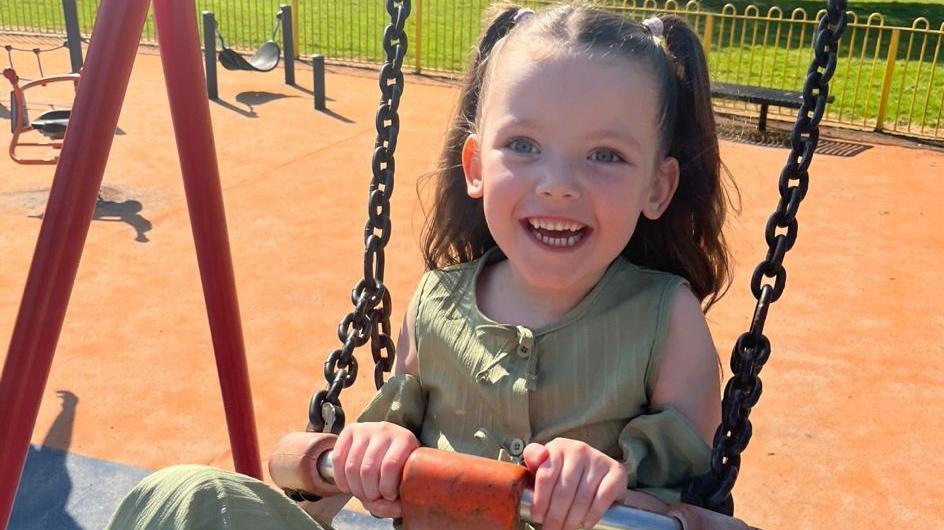
Niamh's application was initially rejected by Glasgow City Council
- Published
Four-year-old Niamh was due to start primary school two weeks ago but instead she is at home with her mum, waiting to find out if there is a suitable place.
The four-year-old, who is autistic and non-verbal, is one of hundreds of children with additional support needs struggling to access a place in a special school.
Her mum Samantha was told by her health visitor and paediatrician that a mainstream school would not be appropriate for her daughter but her application for specialist provision was initially rejected by Glasgow City Council.
In more recent communications, the council has conceded that Niamh may need specialist provision but told the family there are no places available.
It has suggested Niamh could stay in nursery and defer school for a year.
Mum Samantha tells about trying to find Niamh the right place for school
Niamh's mum says she sent the council letters from the paediatrician and others in November last year.
She says that despite "extensive evidence" her application to attend a special additional support needs (ASN) school was rejected.
Samantha says her daughter would not cope in mainstream schooling.
"She would be overwhelmed, overstimulated," she says.
"She would not cope at all. 100%, she wouldn't cope."
"She's got developmental delay, learning disabilities, she's in nappies and she's got high care needs."
Samantha feels like the council has gone against what the healthcare professionals have said and left her in "limbo".
Her case is due to be heard at an ASN tribunal, which allows parents to appeal against a council's decision, in October.
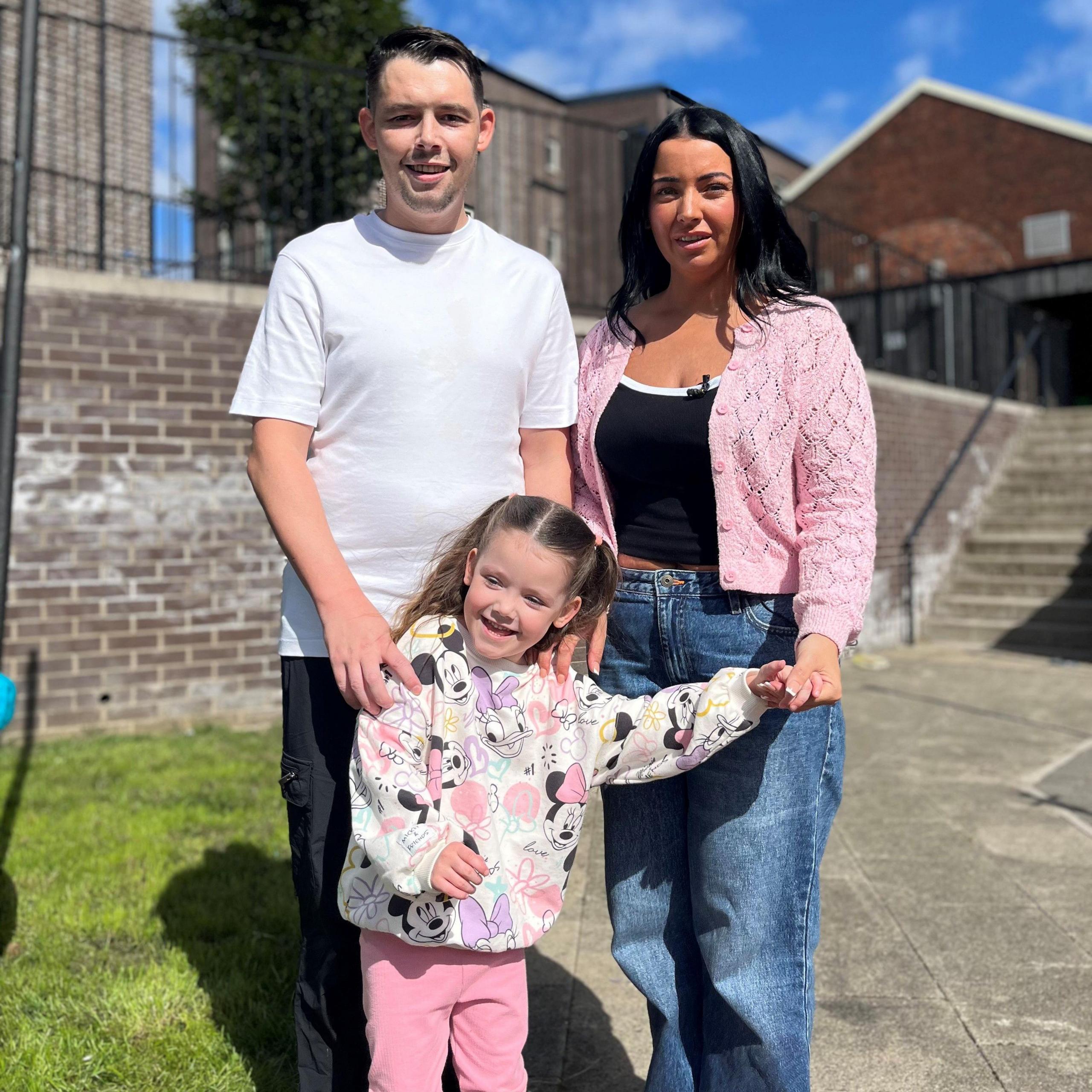
Niamh with her dad Liam and mum Samantha
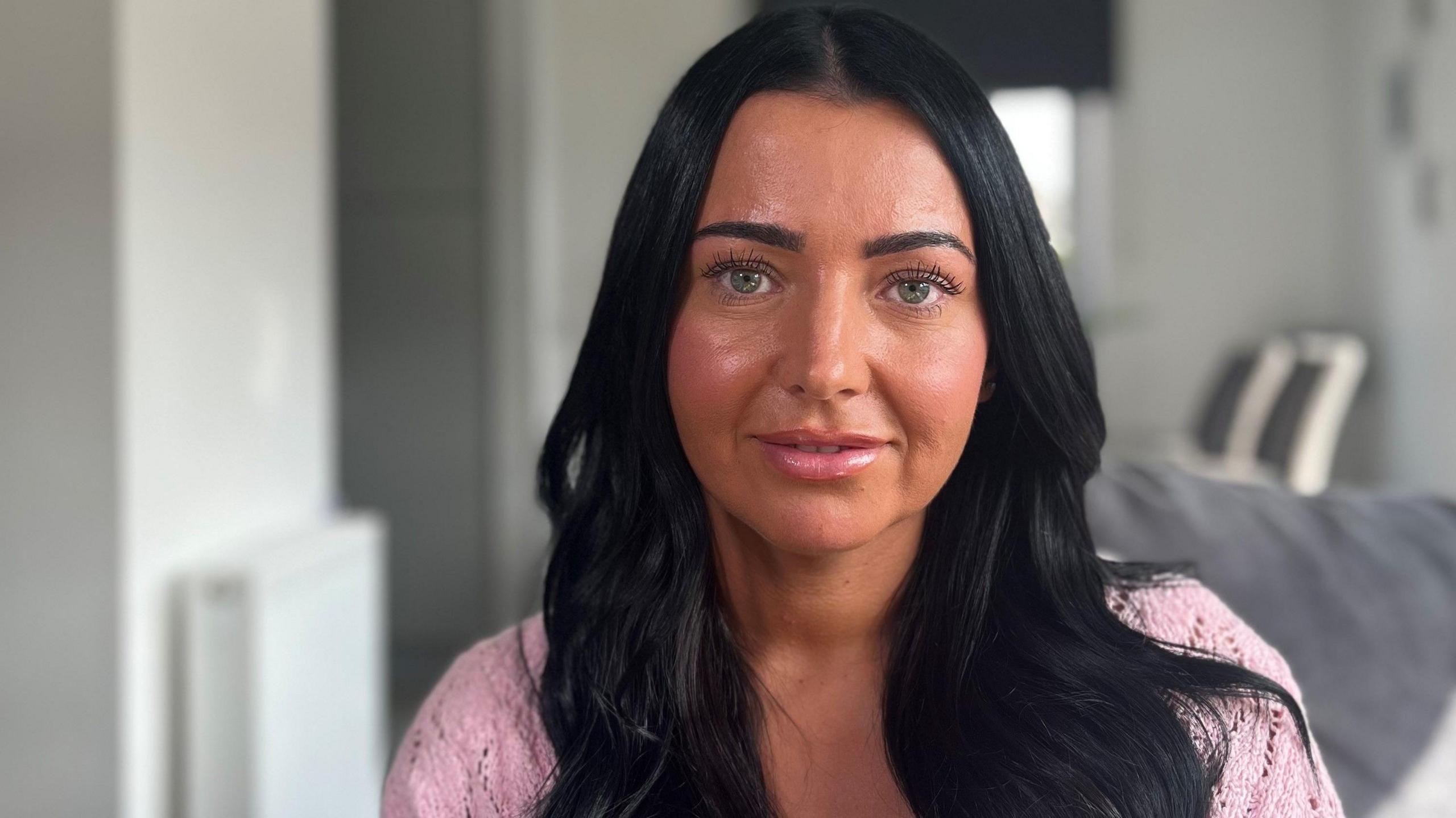
Samantha says her daughter would not cope in mainstream schooling
A Glasgow City Council spokeswoman said: "We know that the ASN tribunal appeals can cause anxiety for parents and their children as the legal process progresses.
"We are sorry that the family feel that the options for Niamh to defer a year, continue to attend nursery until the decision, or the mainstream primary with support are not deemed suitable.
"In the meantime, education officers will continue to work with the family to find a temporary solution."
Andrew Fyffe, from Govan Law Centre, runs the statutory national service which supports parents to appeal against local authority decisions on special schools.
He said the number of appeals lodged had risen from 130 in 2022/23 to 186 in 2024/25, while the number of inquiries to the national helpline had increased from 603 to 1,117 over the same period.
"The numbers have definitely increased. Local authorities are under significant pressure to accommodate children with ASN," he said.
"What we are seeing is that autism especially is the greatest unmet need in the education system at the moment.
"We have seen a huge increase in the number of families reporting a diagnosis of autism or autistic traits."
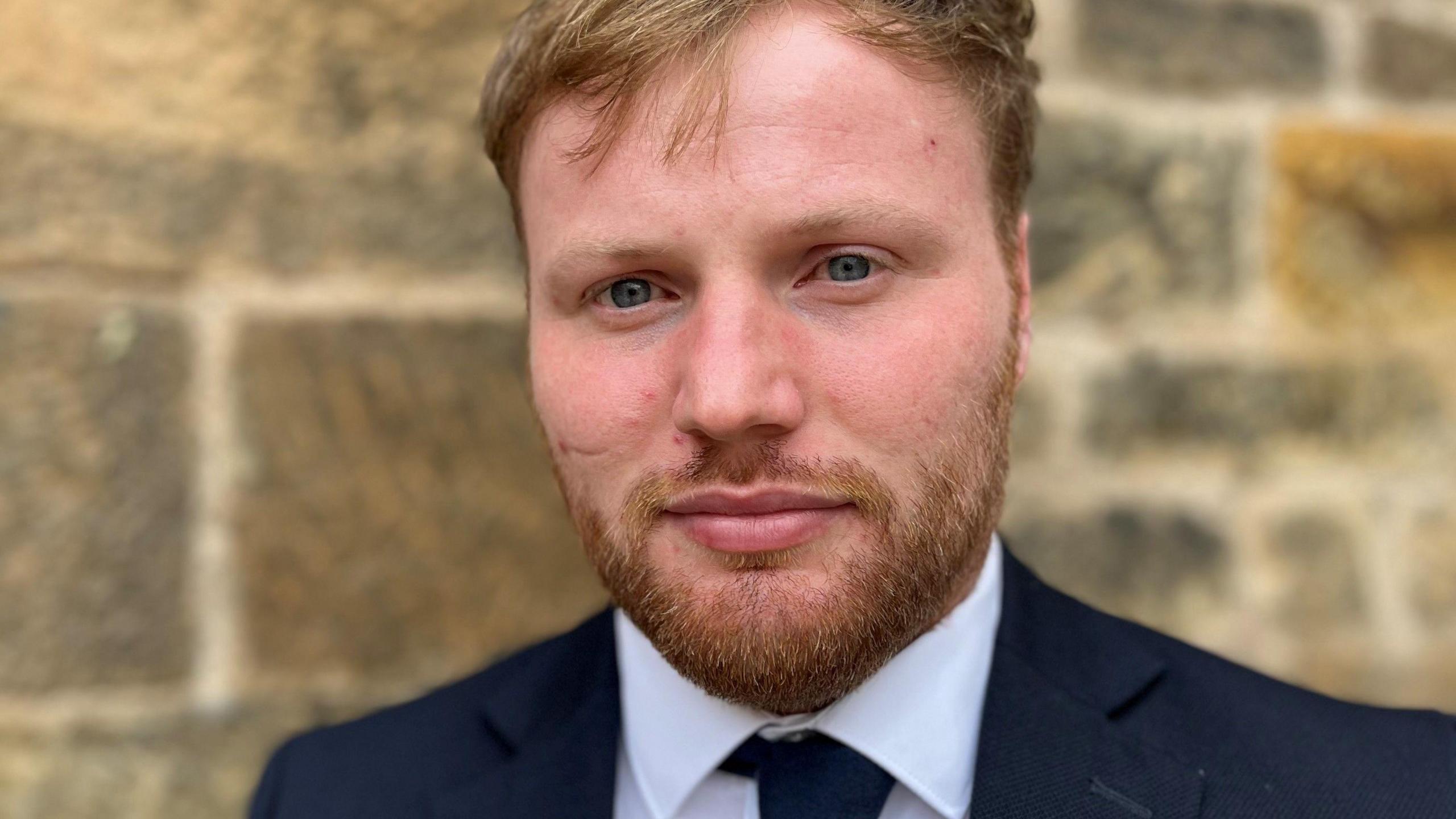
Lawyer Andrew Fyffe says the number of appeals has risen in recent years
Earlier this month School Leaders Scotland, which represents the secondary sector, published data based on freedom of information responses from 22 of Scotland's 32 councils.
Those councils received 1,351 applications for places in specialist schools from pupils transitioning from primary into secondary in 2024/25. However, just 452 were fulfilled - equivalent to 33%.
The previous year councils received fewer applications - 1,157 - but more were granted, with 528 (46%) being successful.
School Leaders Scotland warns that additional support needs in mainstream schools are becoming "unmanageable" and argues that there needs to be a review to ensure consistency of support across the country.
Local government body Cosla said councils were concerned by the increase in appeals to the additional support needs tribunal.
It said the majority of issues could be resolved through engagement with the school or local authority.
"Cosla would support a review of the processes in place where there is a disagreement, including the role of the tribunal service," said a spokeswoman.
"The cost to councils of tribunals is significant, and this is money that they could use to bolster additional support provision.
"The impact of the process on families and the workforce is also a concern, and more emphasis on ways to resolve disagreements which are more collegiate would have benefits for all."
More than 284,000 children in Scotland are recorded as receiving additional support for learning (ASL) – some 40% of all school pupils.
That figure includes a wide range of different needs, including those with dyslexia; those for whom English is not their first language; and those with severe physical and intellectual disabilities.
There has been an almost eightfold increase in pupils recorded as receiving ASL since legislation was introduced in 2004.
That legislation introduced a presumption in favour of all children being in mainstream schools unless there was a very specific reason for them to go to specialist provision.
But some academics argue that the presumption in favour of mainstream has gone too far.
Others point out that 20 years ago the level of support for children with additional needs in mainstream schools was far higher.
Families and campaigners argue that there are hundreds, if not thousands, of children with complex needs who have been unable to get a place in specialist provision.
They say that many of them, like Niamh, are at home.
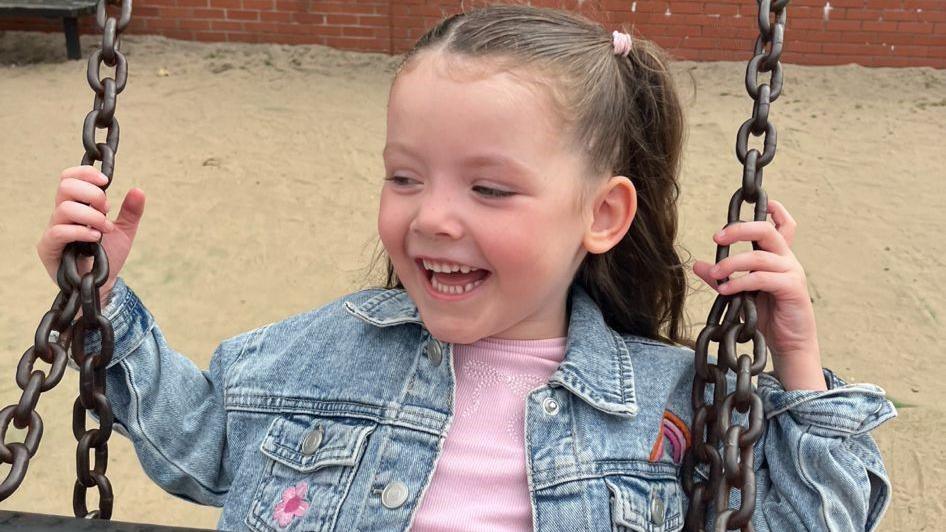
The council suggested Niamh could stay in nursery and defer school for a year
There are 8,000 pupils in special ASN schools, equivalent to 3% of the total school population.
More than 90% of children with additional support needs spend their time in mainstream classrooms – some of which have dedicated facilities.
Scotland's councils estimate they spend around 12% of their education expenditure every year on ASL, covering things like teachers' salaries and the cost of running special schools.
In 2022-23, this was £926m - but spending watchdog Audit Scotland has said this figure does not capture all of the money spent on ASL in mainstream schools.
Earlier this year Audit Scotland criticised the Scottish government for failing to properly plan for the rise in additional support needs.
Its report says the reasons for the huge growth in numbers are "complex" and include changes to data recording and an increasing awareness of children's needs.
But it says it is not possible to determine the scale, complexity and nature of additional support needs across Scotland due to inconsistencies and gaps in the data.
The Scottish government said local authorities were responsible for determining the most appropriate educational provision for pupils.
"We are investing a further £29m this year to support the ASN workforce, in addition to record spend of over £1bn by local authorities on ASN in 2023-24," said a spokesperson.
"The Scottish government has committed to a review of ASN so that children can get the support they need at school."
Related topics
- Published27 February
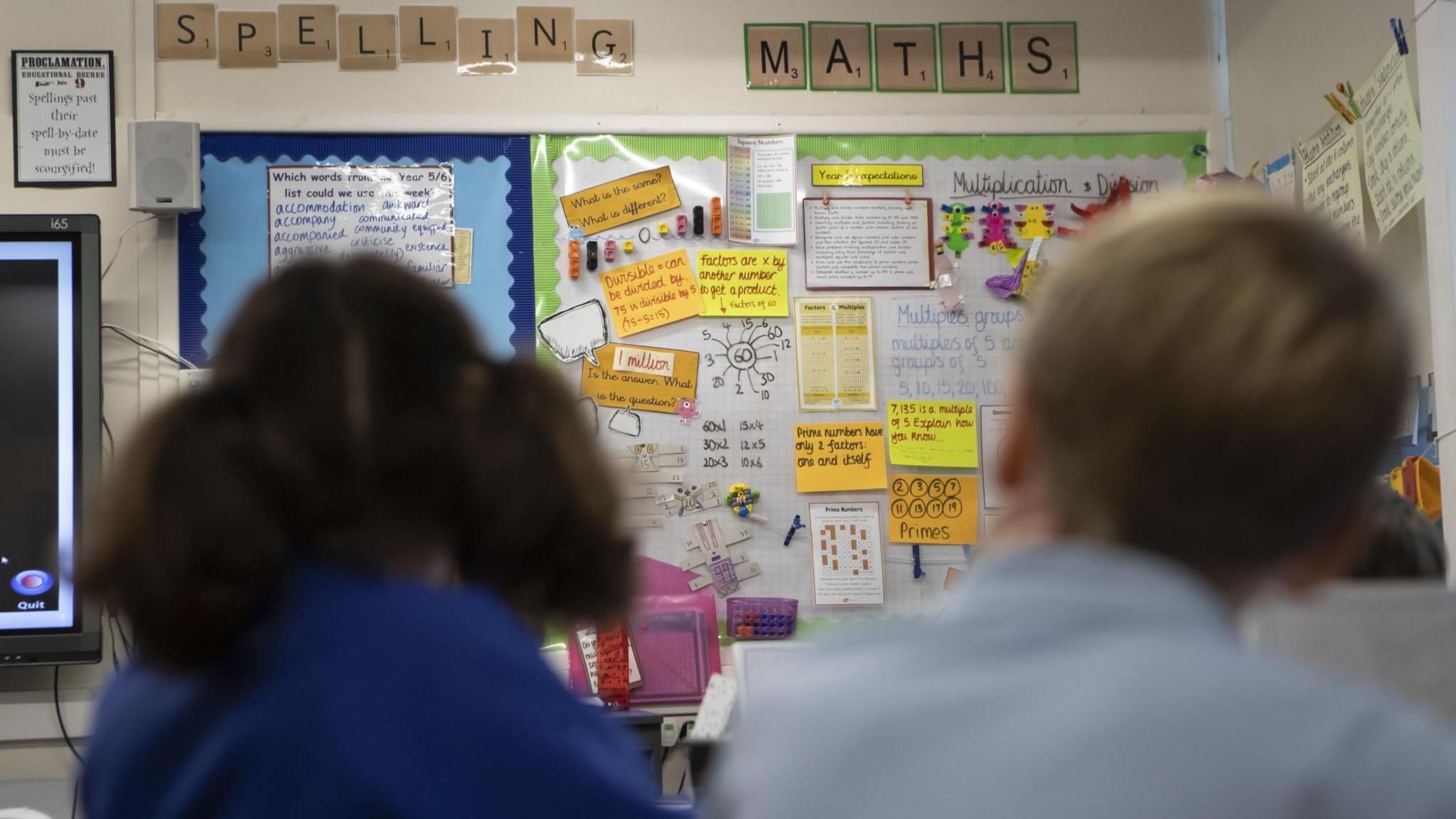
- Published29 April
